BMW 1 Series vs Volvo XC60 – Which model is better for everyday use?
Two cars, one duel: BMW 1 Series meets Volvo XC60.
Which one wins in performance, efficiency and value for money? Find out now!
Costs and Efficiency:
Price and efficiency are key factors when choosing a car – and this is often where the real differences emerge.
BMW 1 Series has a decisively advantage in terms of price – it starts at 28200 £, while the Volvo XC60 costs 49200 £. That’s a price difference of around 20991 £.
Fuel consumption also shows a difference: Volvo XC60 manages with 2.80 L and is therefore convincingly more efficient than the BMW 1 Series with 4.30 L. The difference is about 1.50 L per 100 km.
Engine and Performance:
Under the bonnet, it becomes clear which model is tuned for sportiness and which one takes the lead when you hit the accelerator.
When it comes to engine power, the Volvo XC60 has a noticeable edge – offering 455 HP compared to 300 HP. That’s roughly 155 HP more horsepower.
Both models accelerate almost equally fast – 4.90 s from 0 to 100 km/h.
In terms of top speed, the BMW 1 Series performs clearly perceptible better – reaching 250 km/h, while the Volvo XC60 tops out at 180 km/h. The difference is around 70 km/h.
There’s also a difference in torque: Volvo XC60 pulls convincingly stronger with 709 Nm compared to 400 Nm. That’s about 309 Nm difference.
Space and Everyday Use:
Cabin size, boot volume and payload all play a role in everyday practicality. Here, comfort and flexibility make the difference.
Both vehicles offer seating for 5 people.
In curb weight, BMW 1 Series is evident lighter – 1465 kg compared to 1900 kg. The difference is around 435 kg.
In terms of boot space, the Volvo XC60 offers noticeable more room – 483 L compared to 380 L. That’s a difference of about 103 L.
In maximum load capacity, the Volvo XC60 performs clearly perceptible better – up to 1543 L, which is about 343 L more than the BMW 1 Series.
When it comes to payload, Volvo XC60 barely noticeable takes the win – 550 kg compared to 510 kg. That’s a difference of about 40 kg.
Who wins the race?
The Volvo XC60 proves to be leaves the rival little chance and therefore becomes our DriveDuel Champion!
Volvo XC60 is the better all-rounder in this comparison.
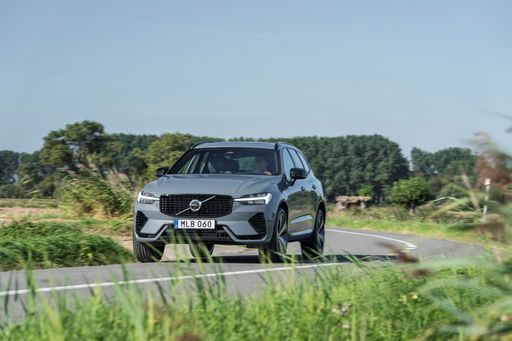
Volvo XC60
BMW 1 Series
The BMW 1 Series stands out with its dynamic design that embodies both elegance and sportiness, making it an attractive choice for urban driving. Its interior offers a premium feel, combining quality materials with the latest in technological features to enhance comfort and connect drivers. Under the bonnet, a range of efficient engines ensures a responsive and enjoyable driving experience, balancing power with practicality.
details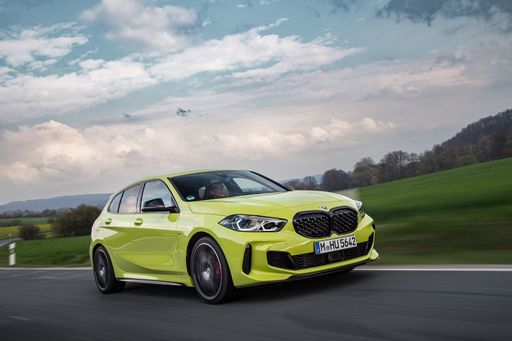 @ press.bmwgroup.com
@ press.bmwgroup.com
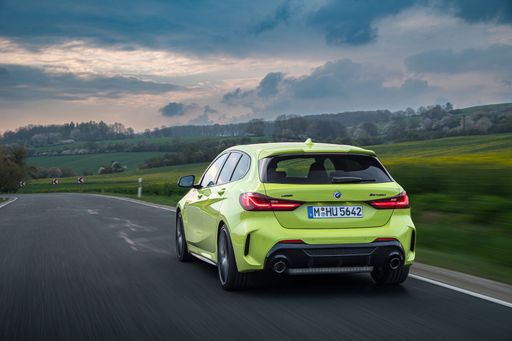 @ press.bmwgroup.com
@ press.bmwgroup.com
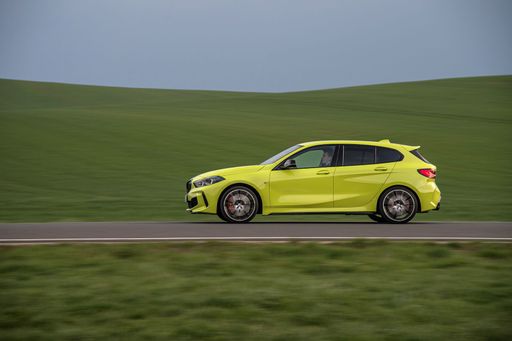 @ press.bmwgroup.com
@ press.bmwgroup.com
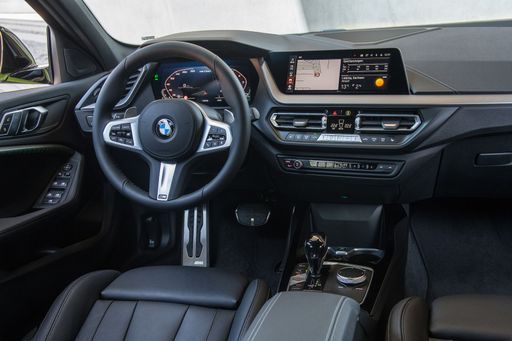 @ press.bmwgroup.com
@ press.bmwgroup.com
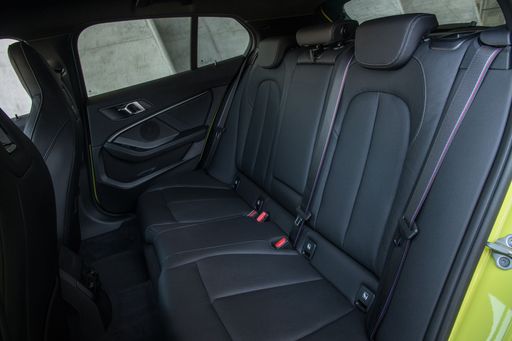 @ press.bmwgroup.com
@ press.bmwgroup.com
Volvo XC60
The Volvo XC60 strikes a perfect balance between contemporary design and practical functionality, making it an appealing choice for those in search of a reliable and stylish SUV. Its interior showcases a blend of high-quality materials and innovative technology, ensuring a comfortable and seamless driving experience. With its emphasis on safety and environmental sustainability, the XC60 continues to stand out in the competitive SUV market.
details @ media.volvocars.com
@ media.volvocars.com
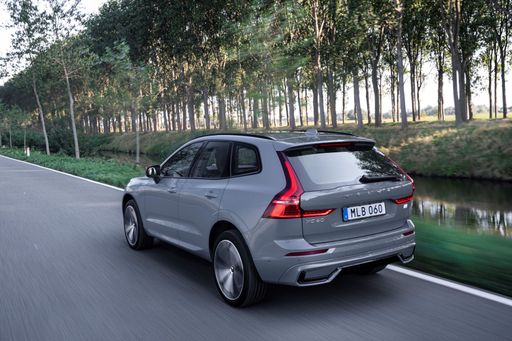 @ media.volvocars.com
@ media.volvocars.com
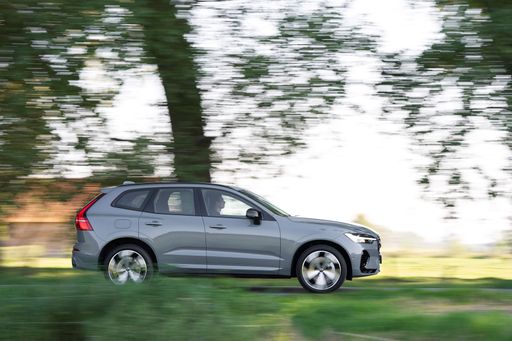 @ media.volvocars.com
@ media.volvocars.com
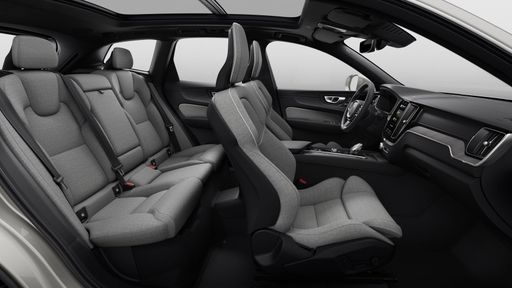 @ media.volvocars.com
@ media.volvocars.com
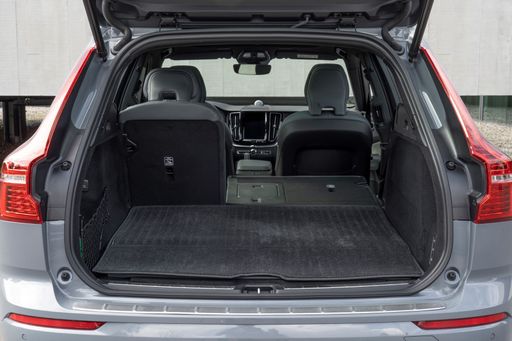 @ media.volvocars.com
@ media.volvocars.com

|

|
|
|
|
Costs and Consumption |
|
|---|---|
|
Price
28200 - 51100 £
|
Price
49200 - 75100 £
|
|
Consumption L/100km
4.3 - 7.6 L
|
Consumption L/100km
2.8 - 7.5 L
|
|
Consumption kWh/100km
-
|
Consumption kWh/100km
-
|
|
Electric Range
-
|
Electric Range
74 - 82 km
|
|
Battery Capacity
-
|
Battery Capacity
14.70 kWh
|
|
co2
112 - 173 g/km
|
co2
64 - 169 g/km
|
|
Fuel tank capacity
49 L
|
Fuel tank capacity
71 L
|
Dimensions and Body |
|
|---|---|
|
Body Type
Hatchback
|
Body Type
SUV
|
|
Seats
5
|
Seats
5
|
|
Doors
5
|
Doors
5
|
|
Curb weight
1465 - 1625 kg
|
Curb weight
1900 - 2150 kg
|
|
Trunk capacity
300 - 380 L
|
Trunk capacity
468 - 483 L
|
|
Length
4361 mm
|
Length
4708 mm
|
|
Width
1800 mm
|
Width
1902 mm
|
|
Height
1459 mm
|
Height
1651 - 1655 mm
|
|
Max trunk capacity
1135 - 1200 L
|
Max trunk capacity
1528 - 1543 L
|
|
Payload
475 - 510 kg
|
Payload
510 - 550 kg
|
Engine and Performance |
|
|---|---|
|
Engine Type
Diesel, Petrol MHEV, Diesel MHEV, Petrol
|
Engine Type
Petrol MHEV, Plugin Hybrid
|
|
Transmission
Automatic
|
Transmission
Automatic
|
|
Transmission Detail
Dual-Clutch Automatic
|
Transmission Detail
Automatic Gearbox
|
|
Drive Type
Front-Wheel Drive, All-Wheel Drive
|
Drive Type
All-Wheel Drive
|
|
Power HP
122 - 300 HP
|
Power HP
250 - 455 HP
|
|
Acceleration 0-100km/h
4.9 - 9.8 s
|
Acceleration 0-100km/h
4.9 - 6.9 s
|
|
Max Speed
210 - 250 km/h
|
Max Speed
180 km/h
|
|
Torque
230 - 400 Nm
|
Torque
350 - 709 Nm
|
|
Number of Cylinders
3 - 4
|
Number of Cylinders
4
|
|
Power kW
90 - 221 kW
|
Power kW
184 - 335 kW
|
|
Engine capacity
1499 - 1998 cm3
|
Engine capacity
1969 cm3
|
General |
|
|---|---|
|
Model Year
2024
|
Model Year
2025
|
|
CO2 Efficiency Class
D, C, F
|
CO2 Efficiency Class
F, B
|
|
Brand
BMW
|
Brand
Volvo
|
What drive types are available for the BMW 1 Series?
The BMW 1 Series is offered with Front-Wheel Drive or All-Wheel Drive.
The prices and data displayed are estimates based on German list prices and may vary by country. This information is not legally binding.
